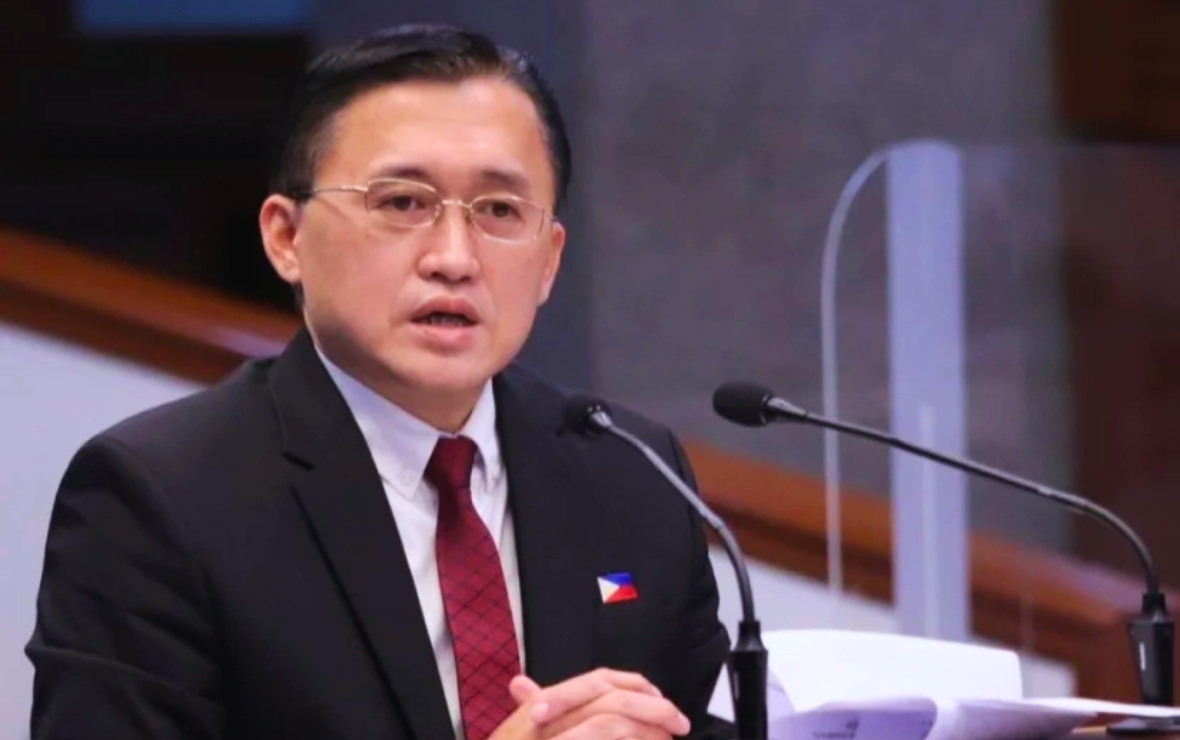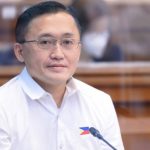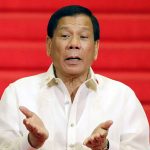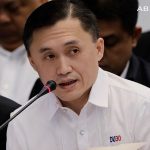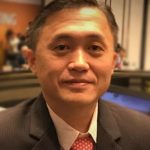“Masakit makitang mga Pilipino ay nagpapatayan sa kapwa nila Pilipino dahil lang sa magkaibang paniniwala,” says Senator Christopher “Bong” Go.
As Vice Chair of the Senate Committee on National Defense, Go is pushing for improved programs and services the government offers to former rebels who decided to rejoin mainstream society and to live with their families in peace.
Even before being elected to the Senate, Go has been a witness to the rootcauses of rebellion in the Philippines, having served former president Rodrigo Duterte for more than two decades starting while the latter was still the mayor of Davao City.
“Kadalasang rason bakit merong namumundok na mga kapatid nating Pilipino ay dahil sa sobrang kahirapan, at ang paniniwala nila na pinapababayaan na sila ng gobyerno, lalo na yung mga kababayan nating nasa liblib na mga lugar,” Go asserted.
“Kaya nga dapat maresolbahan natin ang isyu sa kahirapan, mahalaga na walang pamilyang nagugutom at natutulog sa gabi na walang laman ang tiyan. Dito papasok ang mga kabuhayan programs natin. At kailangang mas lalong ilapit natin ang mga serbisyo ng pamahalaan sa kanila, lalo na yung mga hopeless and helpless, mga mahihirap na wala nang ibang malalapitan kundi ang gobyerno,” Go added, who also sits as a member of the Senate Committee on Social Justice.
Go elaborated on the significance of the Balik-Loob Program under the National Task Force to End Local Communist Armed Conflict (NTF-ELCAC), which aims to reintegrate former rebels into mainstream society by offering various forms of assistance and legal protections.
“Government programs and services must be felt in the grassroots and in every community so that no one will be left behind towards development. Through these initiatives, the government can show its sincerity in uplifting lives and promoting peace,” he said.
The Balik-Loob Program, officially known as the Enhanced Comprehensive Local Integration Program (E-CLIP), is a key initiative of the Philippine government. Managed by Task Force Balik-Loob (TFBL), the program commends the Armed Forces of the Philippines for its role in positively transforming the lives of former rebels.
Created by Administrative Order No. 10 in 2018, during the time of Duterte, the TFBL serves as the central coordinating body for the government’s reintegration efforts for members of the CPP-NPA-NDF, including their immediate families.
A standout feature of the Balik-Loob Program is the Balik-Loob Lending Program, a loan facility provided by LandBank. This lending program is one of the benefits of E-CLIP, aimed at helping former rebels establish or expand businesses, thereby facilitating their successful reintegration into civilian life.
“Marami nang mga magagandang programang nasimulan noong panahon ni dating pangulong Duterte through our whole-of-nation approach para maresolba ang insurgency problem sa bansa. Huwag sana nating sayangin ang mga magagandang nasimulan na ito. Mas palakasin pa dapat,” the senator added.
Go has been advocate of various reforms and programs designed to encourage more rebels to return to the fold of law. He said that in order to achieve peace, all parties should show sincerity in efforts to uplift the lives of all Filipinos without having to take up arms.
“Ako ay nasasaktan tuwing may mga rebeldeng namamatay at lalo na po kapag sundalo ang namamatay. Dahil para sa akin, Pilipino parin po ang mga ‘yan at may mga pamilya pong naiiwan ‘yan. Importante ang kapayapan. Wala na po dapat na patayan, sino ba namang gustong magpatayan,” he stressed.
As chair of the Senate Committee on Health, Go is at the forefront of bringing essential government medical and healthcare services and programs closer to the people. Among his flagship advocacies are the Malasakit Centers program which aims to bring down to the lowest amount possible the hospital bills of particularly poor and indigent patients.
Go principally authored Republic Act 11463 or the Malasakit Centers Act of 2019, signed into law by Duterte which institutionalized the program. There are now 159 operational Malasakit Centers nationwide with around ten million Filipinos already having benefitted from the program, according to a report of the Department of Health.
With the help of his fellow lawmakers, local government units and the DOH, Go also actively pushed for the funding of more than six hundred Super Health Centers nationwide under the 2022 and 2023 national budgets, ensuring that basic healthcare services of the government are being made more available even in far-flung communities.
He was also the principal sponsor and one of the authors of a Senate measure that eventually became the Regional Specialty Centers Act signed into law this year and which mandates for the establishment of such centers in DOH hospitals to bring specialized medical care even to patients outside of Metro Manila and other big cities.

